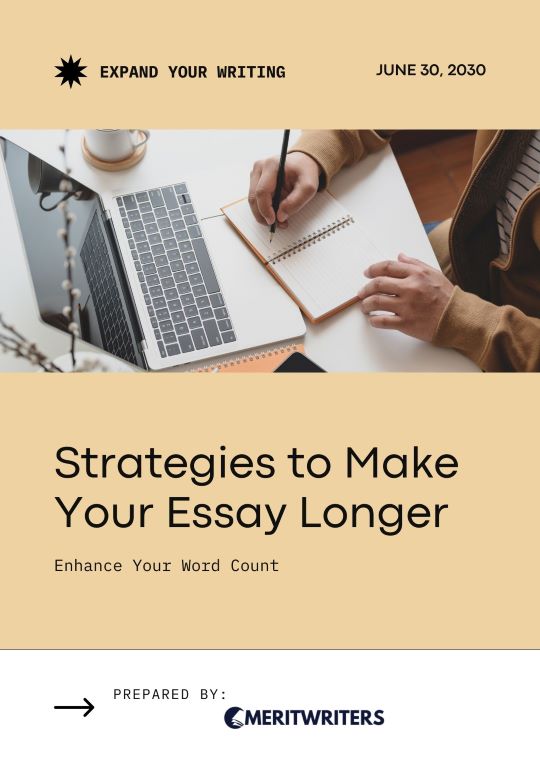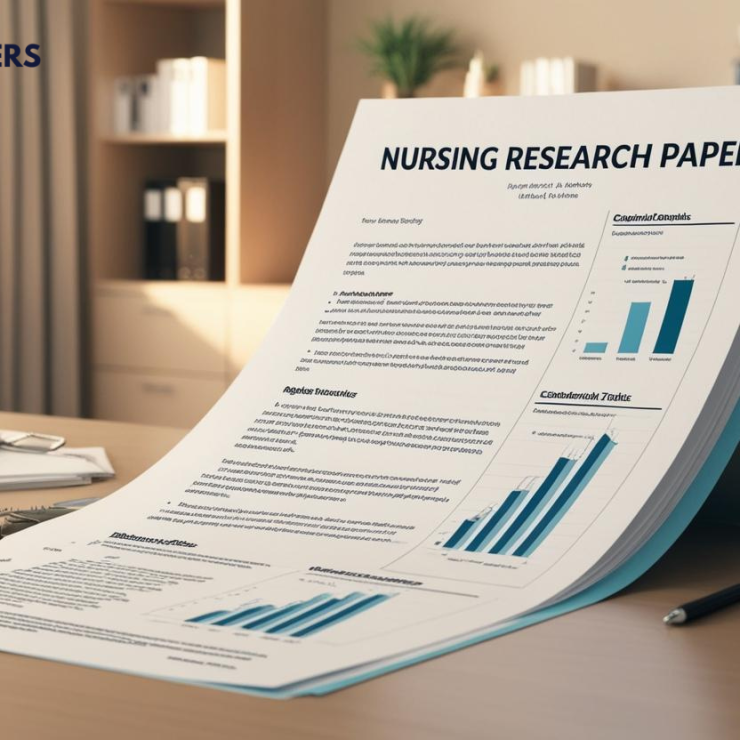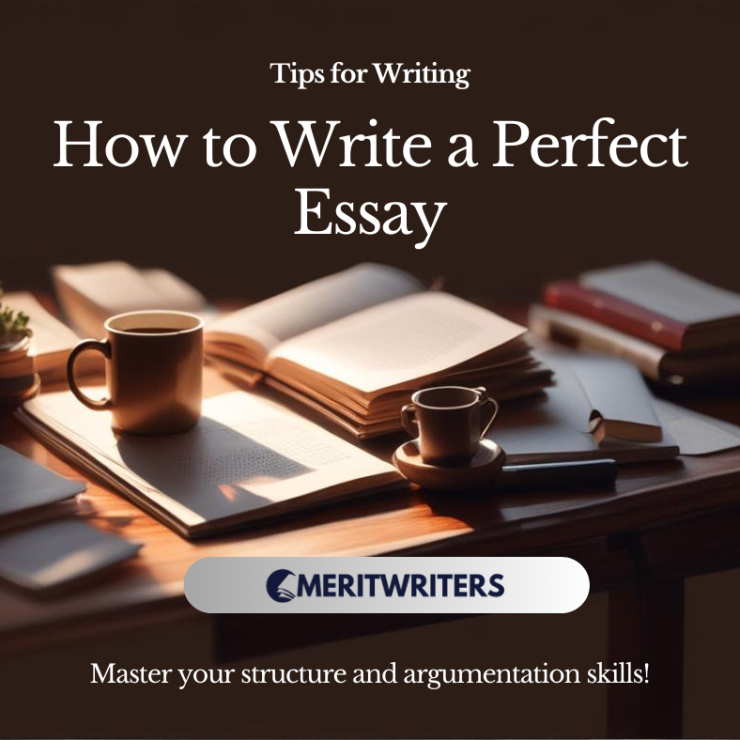Ever written an essay only to realize it’s too short? You’re not alone! Many students struggle to meet word count requirements while keeping their essays informative and engaging. The secret isn’t to add meaningless fluff but to expand ideas, provide depth, and strengthen arguments. This guide will walk you through simple yet effective techniques on how to make an essay longer while maintaining clarity and quality. Whether you need to add examples, improve transitions, or include counterarguments, these tips will help you meet your word count with confidence.
1. Revisit the Prompt and Thesis
Ensure Every Angle is Covered
Before adding content, double-check your essay prompt. Many assignments contain multiple components that students overlook.
- Break down the question – Identify every key theme.
- Check for hidden angles – Ensure all aspects are covered.
- Refine your thesis statement – A clear, strong thesis guides your argument.
For example, if writing about climate change’s impact on the environment, expand by discussing its effects on agriculture, weather patterns, and biodiversity.
2. Expand Key Points with Examples and Analysis
Develop Ideas Further
Instead of just stating a fact, break it down into detailed sections.
- Use real-world examples – Case studies or personal stories make essays engaging.
- Include statistics and research – Credible sources strengthen your argument.
- Add expert opinions – Scholarly insights add depth to your discussion.
For example, instead of writing:
“Exercise improves mental health.”
Expand it like this:
“According to the American Psychological Association, regular physical activity reduces anxiety and depression symptoms by 30%. Exercise releases endorphins, natural mood enhancers that lower stress and promote mental well-being.”
Adding specific details increases credibility and naturally extends your word count.
3. Incorporate Counterarguments and Rebuttals
Strengthen Your Argument
A well-rounded essay considers multiple viewpoints. Including counterarguments shows that you’ve thought critically about the topic.
- State the opposing view.
- Provide evidence supporting it.
- Refute it with strong reasoning.
For instance, if arguing for renewable energy, acknowledge concerns about cost and reliability before explaining how advancements in technology have improved efficiency and affordability.
4. Use More Quotations and Citations
Support Claims with Research
Well-placed quotes add credibility while increasing your word count.
How to use quotes effectively:
- Introduce the quote – Give context before inserting it.
- Explain its relevance – Don’t just drop quotes; analyze them.
- Cite properly – Use APA, MLA, or Chicago style as required.
Instead of:
“Shakespeare once said, ‘All the world’s a stage.’”
Expand with analysis:
“Shakespeare’s famous line, ‘All the world’s a stage,’ from As You Like It, highlights the performative nature of human behavior. Modern psychology supports this idea, emphasizing how individuals adopt different roles in various social settings.”
This method ensures meaningful content expansion rather than just adding words.
5. Add Background Information and Definitions
Provide Context Where Needed
If your essay includes technical terms or historical references, explain them to help readers understand your argument better.
- Define key terms – Clarify jargon or unfamiliar concepts.
- Give historical context – Provide background for better comprehension.
- Use comparisons – Relate unfamiliar ideas to commonly known ones.
For instance, instead of writing:
“The Renaissance was a period of cultural revival.”
You could expand with:
“The Renaissance, which spanned from the 14th to the 17th century, was a period of intellectual and artistic revival in Europe. Inspired by ancient Greek and Roman thought, it laid the foundation for modern science, literature, and art.”
This approach adds depth and word count without unnecessary repetition.
6. Improve Transitions and Flow
Use Transitional Phrases
A well-structured essay should flow smoothly from one idea to the next.
Examples of transitions:
- Adding ideas: Furthermore, in addition, moreover
- Contrasting ideas: However, on the other hand, nevertheless
- Showing cause and effect: Therefore, as a result, consequently
Instead of:
“Renewable energy is essential. Fossil fuels are harmful to the environment.”
Write:
“Renewable energy is essential. Moreover, studies show that fossil fuels contribute significantly to global warming. As a result, many countries are shifting toward sustainable energy sources.”
This small change improves readability and extends the essay naturally.
7. Expand the Introduction and Conclusion
Make Your Introduction More Engaging
If your introduction is brief, consider expanding it by:
- Adding a hook (a quote, question, or interesting fact).
- Giving more background information on the topic.
- Clearly outlining what the essay will cover.
Enhance Your Conclusion
Instead of just restating your thesis, add more depth by:
- Summarizing key points in detail.
- Discussing broader implications.
- Suggesting future research or actions.
Instead of:
“In conclusion, renewable energy is beneficial.”
Write:
“In conclusion, transitioning to renewable energy is not just beneficial but necessary for a sustainable future. By reducing dependence on fossil fuels, promoting innovation, and protecting the environment, we pave the way for a cleaner, healthier planet. Governments and individuals alike must prioritize investment in sustainable energy solutions to combat climate change effectively.”
A well-developed conclusion leaves a lasting impression and extends your essay naturally.
Conclusion
Extending an essay without fluff requires strategic content expansion. Instead of repeating ideas or adding unnecessary words, use these techniques:
- Revisit the prompt to ensure completeness.
- Add examples, evidence, and analysis to strengthen arguments.
- Include counterarguments and refute them effectively.
- Use quotations, definitions, and background information where needed.
- Improve transitions and flow for better readability.
By applying these strategies, you can confidently meet your word count while keeping your essay engaging, informative, and well-structured.
Need Professional Help?
If you’re struggling to meet your essay’s word count or need expert guidance, MeritWriters offers professional essay writing services. Our team of skilled writers can help you expand, refine, and strengthen your essay while maintaining originality and clarity.
📌 Place an order now at MeritWriters for fast, reliable, and high-quality assistance!
FAQs
1. What are some quick ways to make my essay longer?
You can expand key points, add examples, include counterarguments, and improve transitions.
2. How do I extend my essay without making it repetitive?
Focus on adding depth rather than repeating ideas. Provide more analysis, evidence, and explanations.
3. Can I use quotes to increase my word count?
Yes, but use them strategically. Always introduce and analyze quotes instead of just inserting them.
4. Is it okay to add background information?
Absolutely! Relevant background details enhance clarity and strengthen arguments.
5. How can I get professional help with my essay?
You can place an order at MeritWriters for expert assistance with essay writing, editing, and expansion.




